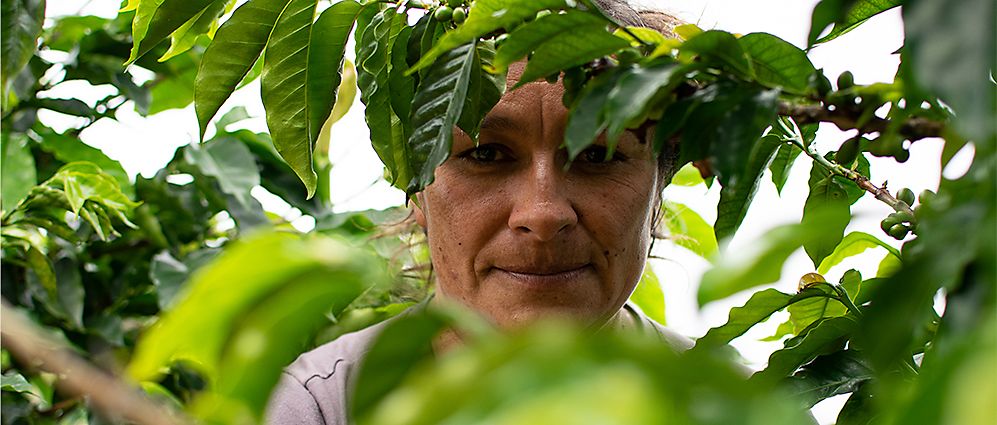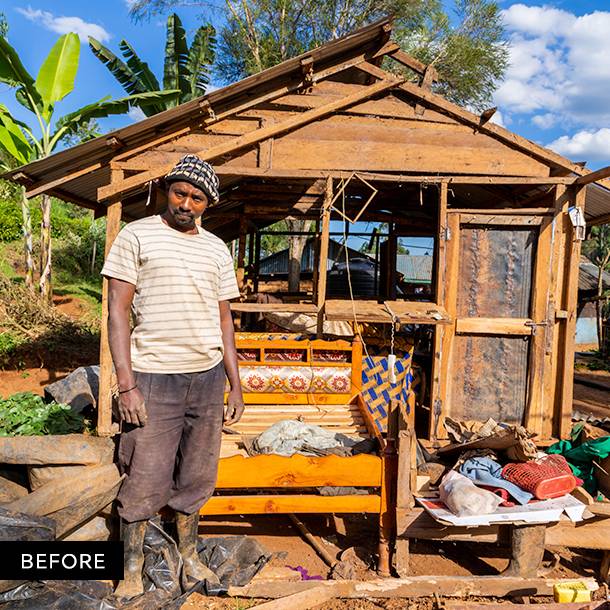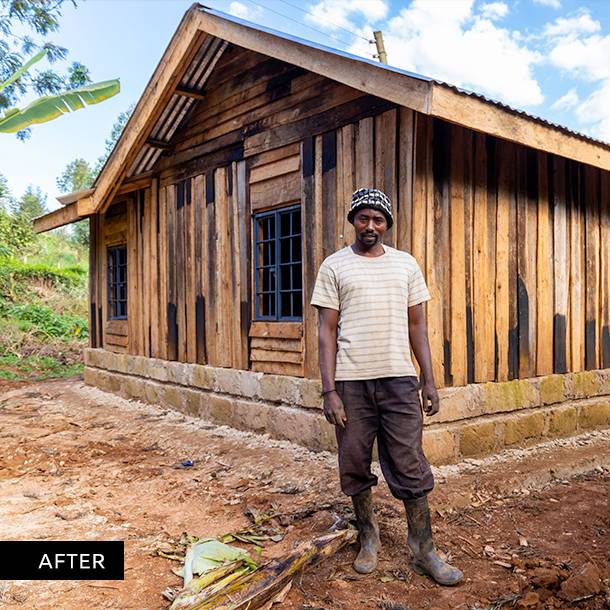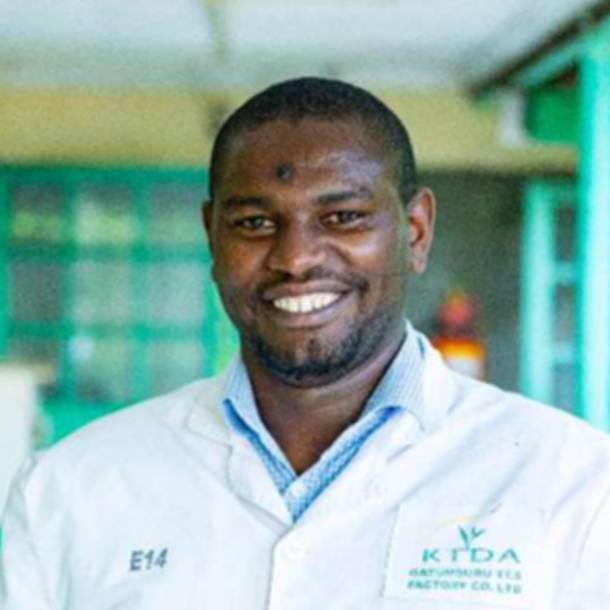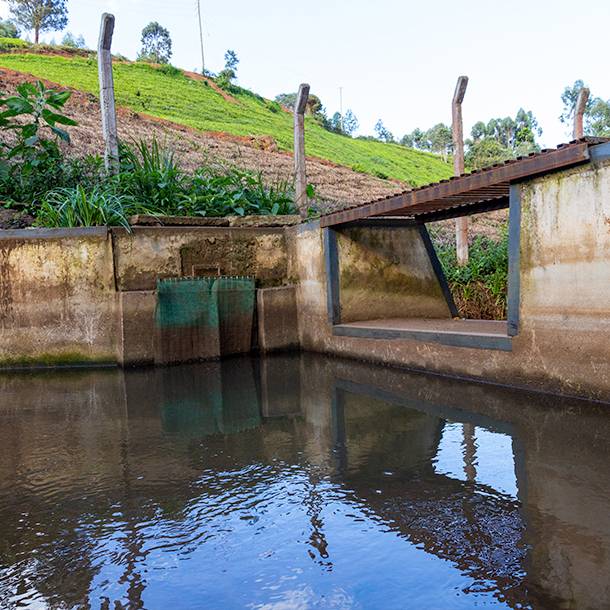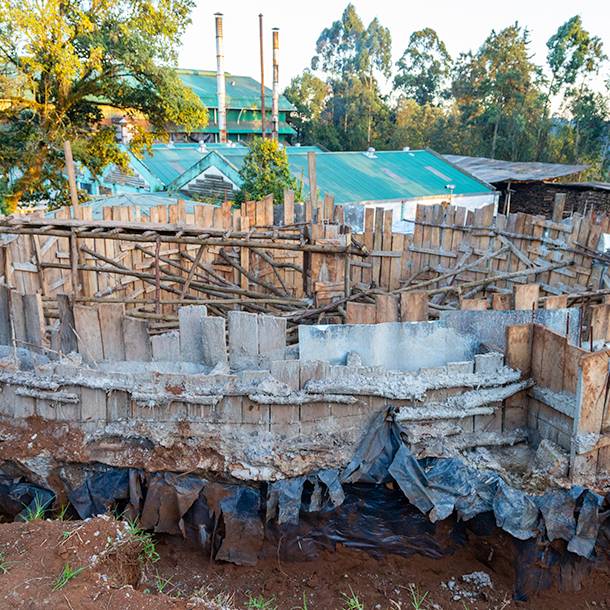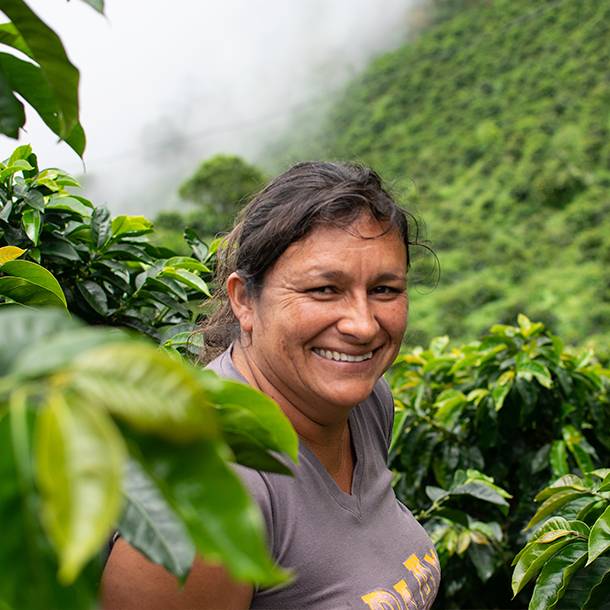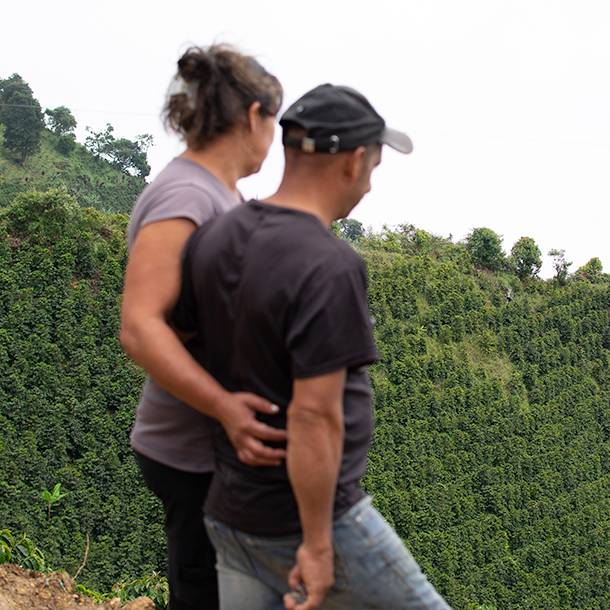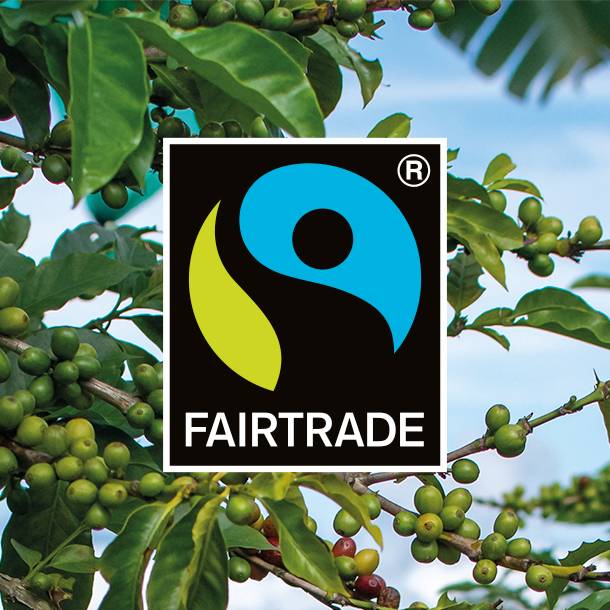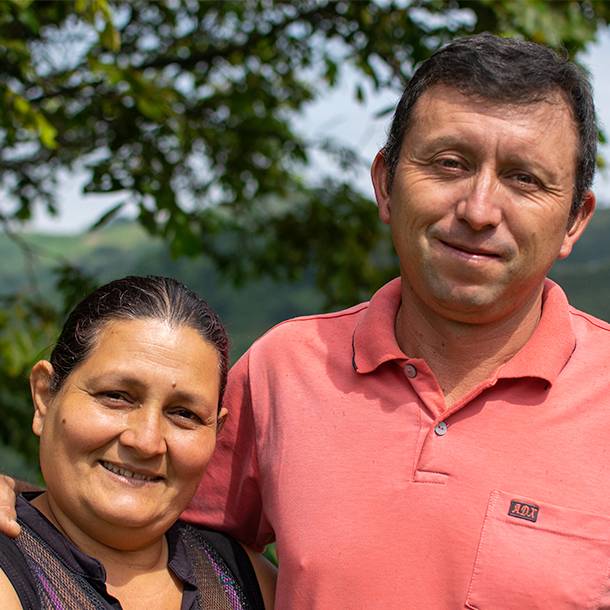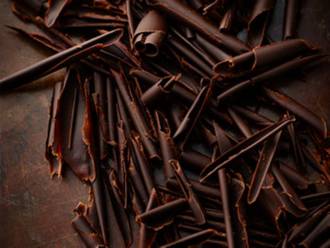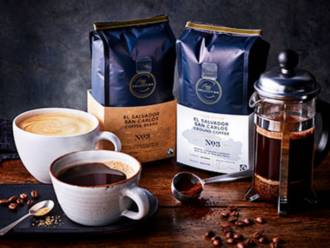All M&S tea and coffee is 100% Fairtrade
At M&S, all our tea and coffee – from the Foodhall to our Cafés – has been Fairtrade-certified since 2006. We’re proud to have long-standing relationships with Fairtrade cooperatives, some of which date back decades and have a huge impact on producers, their families and the wider communities.
We have adopted the Fairtrade Standards as our minimum global sourcing standard for tea and coffee, meaning that in addition to the Fairtrade Minimum Price, growers also earn the Fairtrade Premium, an extra sum of money which goes into a communal fund for workers and farmers to use to enhance the lives of people and communities.
The growers we work with determine what is most important to them, whether this is education or healthcare for their children, improving their business or building vital infrastructure such as roads and bridges for their community. The use of the Premium is decided by an elected Premium committee, who meet regularly and consult with workers and smallholder farmers.
At M&S, we contribute more Fairtrade Premium for tea and coffee than any other UK retailer. Fairtrade works with farmers and workers so they can earn better prices, invest in their communities and businesses, enhance their livelihoods and protect our shared environment.
M&S and Fairtrade
• We were one of Fairtrade’s earliest UK retail supporters and now sell more than 200 Fairtrade-certified products, including chocolate, wine and sugar.
• We sold the highest volume of Fairtrade tea and coffee of any UK Retailer in 2022.
• We raised more than £2.1 million in Fairtrade Premium in 2022, with our own-label tea and coffee generating £1.6 million in Fairtrade Premium alone.
• We have the largest range of Fairtrade certified jam and marmalade of any retailer.
• We support more than 170 producer organisations in 21 countries.
• Fairtrade producers grow quality products that fuel quality of life. A quarter of the Premium funds Fairtrade coffee producers receive is invested in improving the quality of their coffee beans, which means even better tasting coffee for you.
The impact of Fairtrade Premium
Gatunguru tea factory in Kenya
Samuel Gacoka Mwangi – tea grower
Growing up, Samuel Gacoka Mwangi spent lots of time on his parents’ farm. “I would help harvest the tea. That’s how I learnt about tea farming,” he said. Samuel started growing his own tea in 1994 on a half-acre of land he inherited from his father. As well as planting tea bushes and some vegetables, he built a house on his land to live in with his wife and four children.
Samuel’s home was constructed mainly out of wood and wasn’t strong enough to withstand bad weather. Water would seep in: “Sometimes my family would get sick from the excessive cold in the house.” Samuel and his family had to move out and stay with a neighbour.
Samuel is part of the Gatunguru tea factory, which became Fairtrade-certified in 2016. The Fairtrade Premium M&S pays on every tonne of tea is managed by the committee, who decide how to spend it.
Samuel approached the committee about his housing problem. “They came and saw the condition of my house and decided to help me rebuild it.”
Samuel’s new house is bigger, with three bedrooms. Crucially, it's also weatherproof. Now he will be better equipped in the extreme weathers that hit the tea farm more and more often. "I am now safe – and grateful to Fairtrade."
The extreme weather has been a challenge for Samuel’s farm too. "Climate has affected my tea growth, especially because we are in highlands," he said. "Luckily, the factory officials have taught us ways of growing tea even in harsh weather conditions to ensure we don’t make losses."
Samuel said he’s grateful for support from M&S and Fairtrade: "The tea buyers benefit us because that money comes back to pay us as farmers, and we can send our children to school."
Where Fairtrade Premium makes a difference
Gravity water project at Gatunguru
Although tea is not a water intensive crop, tea farmers depend on a consistent source of water for their business – without water and sunshine, tea simply will not grow. Water is mainly used as steam for withering tea leaves and drying tea during processing. It's needed in the factory too, to allow farmers and workers to clean their hands regularly.
But unpredictable rainfall, an impact of the climate crisis, is making it harder for farmers to grow tea and make a sustainable living. At the Gatunguru Tea Factory Company, the Fairtrade Premium they receive is funding an innovative yet simple solution. Their ‘gravity water project’ uses river water to supply the tea factory, creating a sustainable source without the need for electricity.
Godfrey Kabochi, assistant accountant and treasurer of the Fairtrade Premium committee at Gatunguru said: "The gravity water project is one of the biggest benefits we’ve had from Fairtrade." The tea factory’s source of water comes from a river about seven kilometres away. Previously, the water was pumped, which was expensive as it used a lot of electricity.
With the new project, they laid pipes from an inlet in the river to storage tanks at the factory. Since the factory sits at a lower altitude than the river, gravity generates the water pressure needed to pipe it to the factory’s tanks.
"We had been using between 80,000 and 100,000 Kenyan shillings (£530 - £670) monthly on pumping," said Godfrey. "Right now, we are getting water free of charge. This is a big achievement to us."
The Fairtrade Premium also paid for two water storage tanks at the factory. One supplies the boiler, providing heat which is needed for an essential part of the production process – the withering and drying of the tea leaves.
The water project not only guarantees continuous and consistent tea production, it’s saving energy and helping build resilience to climate change. As a result, it’s been nominated for an award for efficient energy use.
Godfrey said he would like to thank those that buy Fairtrade tea for their support. "I would appeal to them to continue buying our teas in large quantities because this benefits our small-scale farmers greatly."
Fairtrade Coffee farmer stories from Colombia
Luz Elena Vargas – coffee farmer and entrepreneur
Coffee farmer and entrepreneur Luz Elena Vargas has been a member of the Fairtrade-certified Aguadas co-operative for more than a decade. Before joining, 39-year-old Luz said that life could be uncertain. She and her husband, who’s also a farmer, didn’t have the money or resources they needed to improve their home or farm.
"[With Fairtrade] we have been able to move forward," Luz said. "We have stability belonging to the co-operative. They have supported us a lot, both emotionally and economically."
The co-operative chose to use some of their Fairtrade Premium, contributed to by M&S, on a health programme for their members. This includes making funds available to farmers for dental and medical appointments, and subsidised travel to and from major cities for appointments and surgeries. "The co-operative and Fairtrade are organisations that put us first," said Luz. "They have also supported my son because he has also had surgeries."
Luz’s family has also benefitted from a Fairtrade Premium project that allocates grants for some home improvements. "Fairtrade is collaborating day by day with us. They are aware, for example, of the resources that we, as a family, need." Luz would love to see her daughter and son follow in her footsteps, choosing coffee farming as a career.
Hear from Kate Nkatha Ochieng, director at Fairtrade Africa
"Together with Fairtrade farmers and workers across Africa, national Fairtrade organisations, and businesses such as yourselves, we are working towards a fairer future, where social justice and climate justice reaches the most vulnerable communities across the world. Where farmers feel secure in the knowledge that their futures are safe. That they are supported through their fears while living on the frontline of the climate crisis and have hope and the tools to build resilience and to protect the future of our food.
"The impact of your Fairtrade commitments cannot be ignored. These stories from the farmers in your tea supply chain demonstrate how higher incomes through the Fairtrade Minimum Price give producers stability and the importance of producers’ decision-making power through the Fairtrade Premium. They also highlight the support producers receive, simply by belonging to the Fairtrade network, through on the ground trainings and advice from our team here at Fairtrade Africa.
"On behalf of the farmers and I, please keep going. Keep buying on Fairtrade terms. Keep supporting the Fairtrade movement. Keep making the world a fairer place. Thank you."
Why the work of Fairtrade is so important
From the Colombian rainforest to the M&S Foodhall, every part of the process has a story. When it comes to the farmers, growers and picking communities we work with – we are passionate about sharing those stories. At M&S, we have always been big believers of fairness: that’s why we partner with Fairtrade and will continue our 20-year strong partnership.
The stories from the communities that work with us to create M&S products shows us the importance of the work Fairtrade do. We are proud to partner with Fairtrade for a fairer future.
